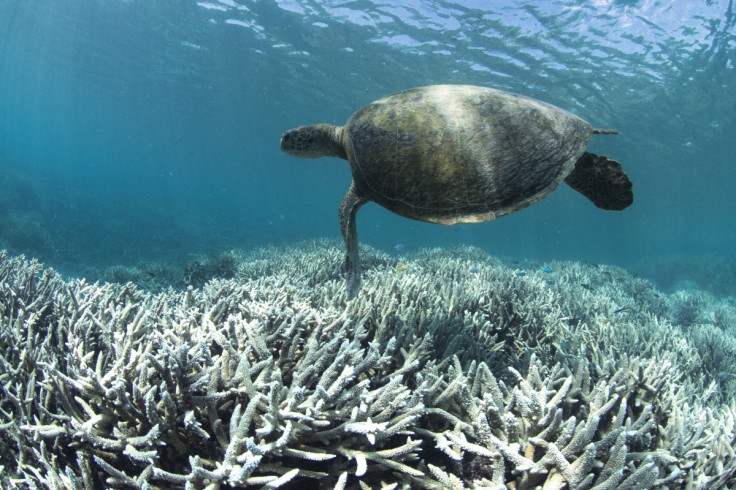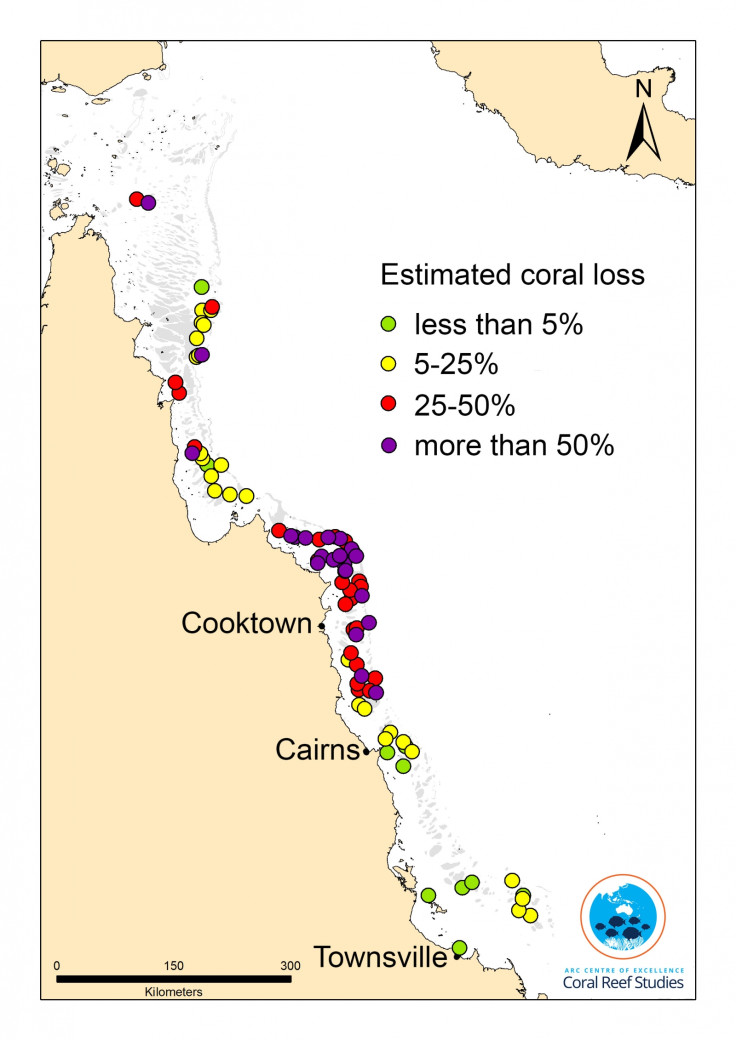Great Barrier Reef: Alarm bells ring over rising coral deaths due to bleaching
More than a third of corals in the northern and central sections of the Great Barrier Reef are now dead due to mass bleaching. That is the stark assessment of Australian scientists following the completion of extensive aerial and underwater surveys along the 2,300km (1,400 miles) length of the structure.
Researchers from James Cook University in Queensland say this is the most severe bleaching event they have ever recorded at the Great Barrier Reef, with climate change viewed as the greatest threat facing one of the world's most iconic natural wonders.
"We found on average, that 35% of the corals are now dead or dying on 84 reefs that we surveyed along the northern and central sections of the Great Barrier Reef between Townsville and Papua New Guinea," said Prof Terry Cook, director of the ARC Centre of Excellence for Coral Reef Studies.
Bleaching occurs when corals are stressed by adverse changes in conditions such as temperature, light or nutrients, which forces them to expel algae living in their tissues called zooxanthellae.
The result is corals gradually losing their colour before turning completely white.
Corals are known to recover from bleaching but if the algae loss is prolonged and the stress continues, they eventually die.
'Time running out'
Prof Hughes said bleaching is relatively mild in the southern sections of the Reef, with corals south of Cairns expected to return to their normal colour in the coming months.
However, the recovery of reefs in the worst-affected northern and central areas is expected to take a decade or longer.

"This year is the third time in 18 years that the Great Barrier Reef has experienced mass bleaching due to global warming, and the current event is much more extreme than we've measured before," Prof Hughes said.
"These three events have all occurred while global temperatures have risen by just 1C above the pre-industrial period. We're rapidly running out of time to reduce greenhouse gas emissions."
Prof John Pandolfi from the University of Queensland added: "It is critically important now to bolster the resilience of the Reef, and to maximise its natural capacity to recover.
"But the Reef is no longer as resilient as it once was, and it's struggling to cope with three bleaching events in just 18 years."

The assessment comes days after it emerged Australia had pressured the United Nations to remove all references of the Great Barrier Reef from a report on the current status of World Heritage sites.
Australia's Department of Environment said that the government's objection to the report stemmed from fears that it could negatively impact upon tourism.
Scientists plan to re-visit the same reefs over the coming months to assess the final damage to the structure from coral bleaching.
© Copyright IBTimes 2025. All rights reserved.






















